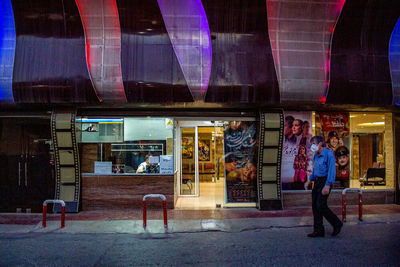Pointing to the screening schedule of films at the movie theaters across the country over the past six months, Sajjad Noruzi said, “The coronavirus pandemic did its first and most destructive damage on entertainment.”
“In the current situation, whatever is related to entertainment has been destroyed including cinema since health protocols need to be strictly observed by the moviegoers. Therefore naturally the number of moviegoers has sharply dropped over these months,” he said.
“If even I was not a cinema manager, I would have been more cautious and would not go to cinema. Therefore, we cannot deny the reality that people are afraid of any unnecessary gatherings, and they decide not to go to cinema, restaurant, or even on a journey for at least a year. This decision has been made by those who used to go to cinema, and as long as the situation remains this way they prefer to omit entertainment from their lifestyle,” he explained.
“We cannot expect everything to return to a normal situation like the days before coronavirus. This is something clear and serious. But what the world has done in this situation is that they have chosen to release a box office hit like ‘Tenet’ (a 2020 action-thriller and science fiction film written and directed by Christopher Nolan) and obtained good results although they might not be as good as in previous years,” he added.
“Some other countries have also been able to control this new virus and their lifestyle is somehow back as it was in previous times by observing health protocols. But Iran has not been successful, and we are still facing new cases of coronavirus and a high death toll. So it is hard to expect movie theaters return to as they were in previous times,” he mentioned.
He next said, “At the current time several series are being produced at the home video network to keep people entertained these days, but this will have a short-term effect because nothing can replace cinema in the world.”
“If this entertainment is omitted, it will have a negative impact that will not be compensated for. We only want that there should be some kind of regulation to manage coronavirus to help prevent the destruction of cinema,” he noted.
“It has been over seven months that we have been dealing with the new virus and about 4 months since the theater halls reopened, and after the reopening, there has not been any support,” he concluded.
Iran’s Ministry of Culture and Islamic Guidance canceled all art, cultural and cinematic events across the country in February in an attempt to stem the spread of the coronavirus.
The Association of Iranian Theater Owners asked President Hassan Rouhani to lift the coronavirus restriction on cinemas, calling for reopening of the theaters across the country based on the health protocols during the pandemic on May 20.
Later, the Cinema Organization of Iran announced that the movie theaters in the so-called “white areas” or regions with no coronavirus hospitalizations in the previous two weeks would be allowed to reopen, while the protocols issued by the Coronavirus Control Operations Headquarters for the theaters had to be observed.
The cinemagoers were asked to observe social distancing, while the employees were asked to wear face masks and plastic gloves.
In late June, all movie theaters resumed activities after a four-month-long closure, but were forced to close once again due to a sharp rise in the number of coronavirus infections and deaths.
Source:Tehran Times

